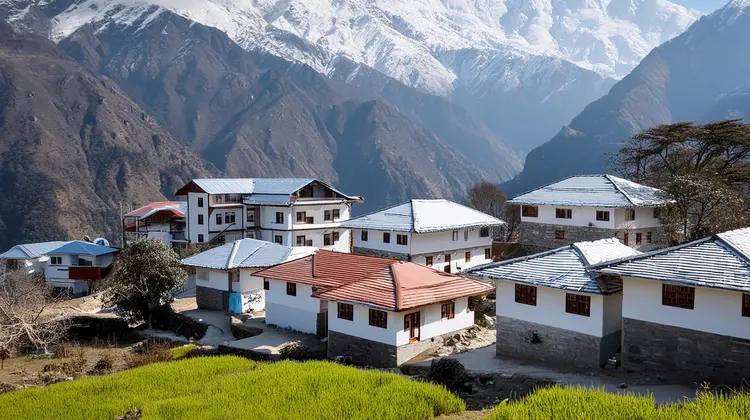
Challenges and Opportunities in Nepal’s Rural Real Estate Market
Nepal’s rural real estate market presents a unique landscape filled with both significant challenges and promising opportunities. While urban areas like Kathmandu and Pokhara often dominate the real estate headlines, rural regions hold untapped potential for investors, developers, and local communities. This article explores the key challenges facing Nepal’s rural real estate market and the opportunities that make it an attractive option for investment.
Challenges in Nepal’s Rural Real Estate Market
Infrastructural Deficiencies
One of the most prominent challenges in rural Nepal is the lack of robust infrastructure. Many rural areas suffer from inadequate roads, unreliable electricity, and limited access to clean water. These infrastructural deficiencies can deter potential investors and make construction projects more difficult and costly.
Land Ownership and Legal Issues
Land ownership in rural Nepal can be complex. Many properties lack clear titles due to traditional land tenure systems and the informal transfer of land. This can lead to disputes and legal challenges, complicating real estate transactions. Furthermore, bureaucratic hurdles and a lack of transparent land records add to the difficulty of securing and developing rural land.
Limited Access to Financing
Securing financing for real estate projects in rural areas is often more challenging than in urban centers. Financial institutions may view rural investments as higher risk due to market volatility and lower property values. This can limit the availability of loans and increase the cost of borrowing for developers and buyers alike.
Market Demand and Economic Activity
The demand for real estate in rural areas is typically lower compared to urban regions. Rural populations often have lower incomes, reducing their purchasing power and limiting the market for high-value properties. Additionally, economic activities in rural areas are predominantly agriculture-based, which may not generate sufficient income to support a vibrant real estate market.
Opportunities in Nepal’s Rural Real Estate Market
Agricultural and Eco-Tourism Potential
Nepal’s rural areas are rich in natural beauty and cultural heritage, making them ideal for eco-tourism and agro-tourism projects. Investing in properties that can be developed into eco-friendly resorts, organic farms, or cultural tourism destinations can attract tourists and generate sustainable income. The growing global interest in sustainable and responsible tourism further enhances the potential of these ventures.
Government Initiatives and Support
The Nepali government has recognized the need to develop rural areas and is implementing policies to support this growth. Initiatives like the Rural Housing Program and various infrastructure development projects aim to improve living conditions and attract investment to rural regions. Additionally, incentives such as tax breaks and subsidies for rural development projects can make investments more attractive.
Affordable Land Prices
Land prices in rural Nepal are significantly lower than in urban areas, offering a cost-effective entry point for investors. This affordability allows for larger-scale projects that may not be feasible in more expensive urban markets. Investors can acquire sizable plots of land for agriculture, tourism, or residential developments at a fraction of the cost.
Community-Based Development
Rural real estate investments can also focus on community-based development, which can enhance local living standards while ensuring sustainable growth. Projects that involve local communities in the planning and development process tend to be more successful and socially accepted. These projects can include building schools, healthcare facilities, and affordable housing, which can foster long-term positive impacts on rural societies.
Renewable Energy Projects
Nepal’s rural areas have significant potential for renewable energy projects, particularly hydropower and solar energy. Investing in land for renewable energy development can provide substantial returns and contribute to the nation’s energy needs. These projects can also help address the infrastructural challenges that rural areas face, creating a more conducive environment for further real estate development.
Conclusion
Nepal’s rural real estate market, while fraught with challenges, offers a range of exciting opportunities for investors and developers. By addressing infrastructural deficiencies, navigating legal complexities, and leveraging government support, stakeholders can unlock the potential of rural regions. Investing in eco-tourism, agricultural projects, and renewable energy can not only yield profitable returns but also contribute to the sustainable development of Nepal’s rural communities. As the country continues to grow and modernize, the rural real estate market is poised to become an increasingly important and rewarding sector.


0 comments